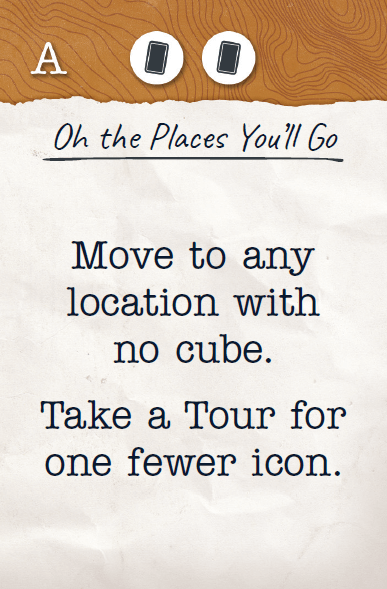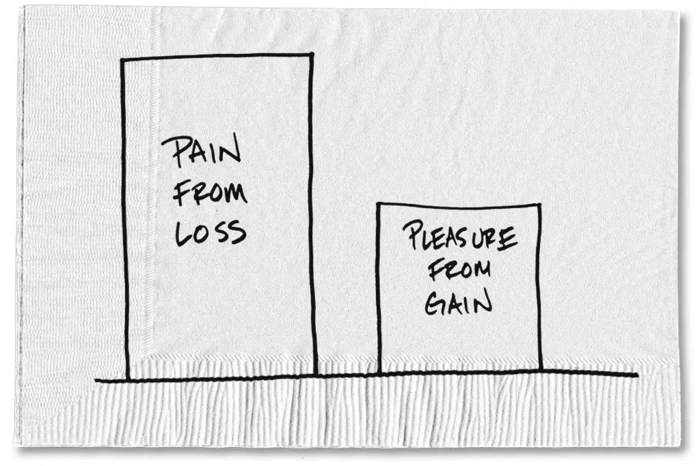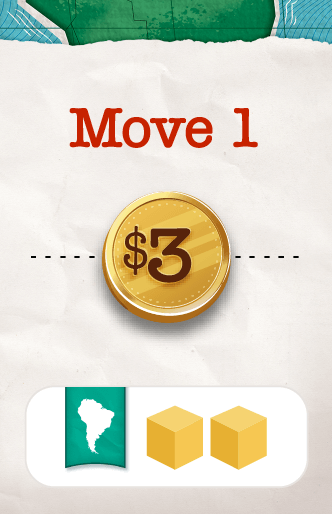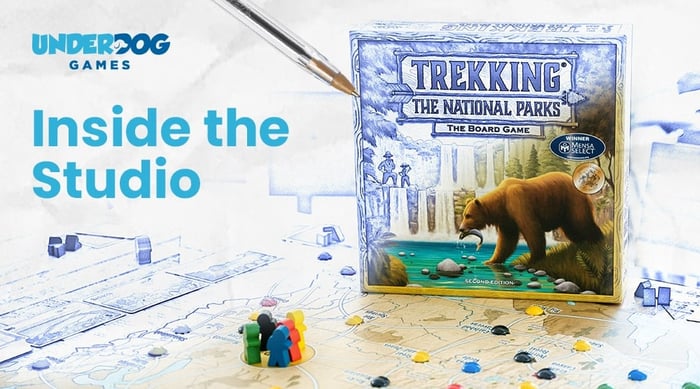Welcome to this week's behind-the-scenes post.
Today's is about a design principle we applied to make the 2nd Edition of Trekking the World.
A criticism of 1st Edition
When we were studying the criticisms of 1st edition, we noticed one repeated a lot:
Some groups never used the cards in the game called Journey Cards. These are cards that "break" the normal rules of play when activated. Example:

When I started asking players about this, their answers suggested the problem was more common even than the online comments suggested.
This was a big issue, because Journey Cards are supposed to be the main thing that changes from play to play, and therefore key to the game's replayability. Without them, the game is both strategically simpler and more samey than intended.
Why do players avoid the Journey Cards?
In 1st edition, much of what you do in the game has an explicit cost - you must pay cards from your hand to:
- travel on the game's map
- take tours (the main source of points),
- activate the Journey Cards.
Moreover, the card economy is "tight", and players often feel they don't have enough cards to do everything they want to do.
This creates a situation where players are hesitant to pay for things sometimes, even when it makes mathematical sense to do so.
In the world of behavioral economics, there's a term for this: loss aversion.
Loss aversion refers to the the fact that the pain of losing something is psychologically twice as powerful as the pleasure of gaining the same thing.

Systems where you must pay resources to gain others can distort player incentives through loss aversion. I think this is what has happened in 1st Edition. The tight card economy, coupled with the fact that one general currency pays for many things, including the game's points, creates an environment ripe for loss aversion.
The Journey Cards were particularly vulnerable because, when you activate one, you give away physical objects (cards), but you don't gain any physical objects (you just activate a power). Human psychology is set up to subconsciously tally the acquisition and loss of physical objects in the way we account for things.
Explicit Costs vs Opportunity Costs
In thinking about how to solve the problem, we tried a bunch of solutions. One of them was: what if we replaced explicit costs with opportunity costs?
The cost associated with making a choice between “free” options is called an opportunity cost. The options aren't actually free because to get one benefit, you have to forego getting some other benefit you would have gotten if you’d made a different choice.
The thing I love about opportunity costs is that they often aren't experienced as costs. You're not actively "giving something away" to pay for whatever you're buying, so you experience what you're getting as "free". Because of this, opportunity costs almost never trigger loss aversion.
So we thought: what if we replace Journey Cards with "free" cards that you can get by traveling to specific locations on the map? The opportunity costs would be the costs of not traveling to some other location and getting other "free" stuff there.
That's the solution that ended up in 2nd Edition. The new cards are called Encounter Cards. You you physically acquire when you go to a particular map location, and they're "free" except for their opportunity costs: the money, souvenirs, Encounter cards or Tour cards you might have gotten if you'd gone somewhere else.
A secondary benefit of tying these cards to specific locations is they allowed us to enhance the theme: Encounter cards represent serendipitous experiences you have as you travel. I think this sort of serendipity is an essential part of the joy of travel, and it wasn't represented thematically 1st Edition.
Not only Journey Cards
The switch from explicit costs to opportunity costs worked so well for the Journey Card issue, we also tried replacing explicit movement costs with opportunity movement costs, and it worked there too. So now you no longer "pay" for movement, except through opportunity costs.
In 2nd Edition, you choose an "itinerary" at the beginning of each turn which tells you where you can move, and the only cost is opportunity cost of not choosing some other itinerary.
We also added another “free thing” mechanic into the new version, called “Itinerary Tokens”. These don’t have any corresponding costed mechanic in the original version. Itinerary Tokens are one of two mechanics play testers usually say is their favorite thing about the new version (the other is Encounters). But those are a topic for a different day, as this post is getting a bit long.
All of this has has seemed to work so well, that we've enshrined it in a principle in our design principles document:
Favor opportunity costs over explicit costs
Players tend to feel better when making choices between “free” things to get, than when deciding whether they should pay for something.



